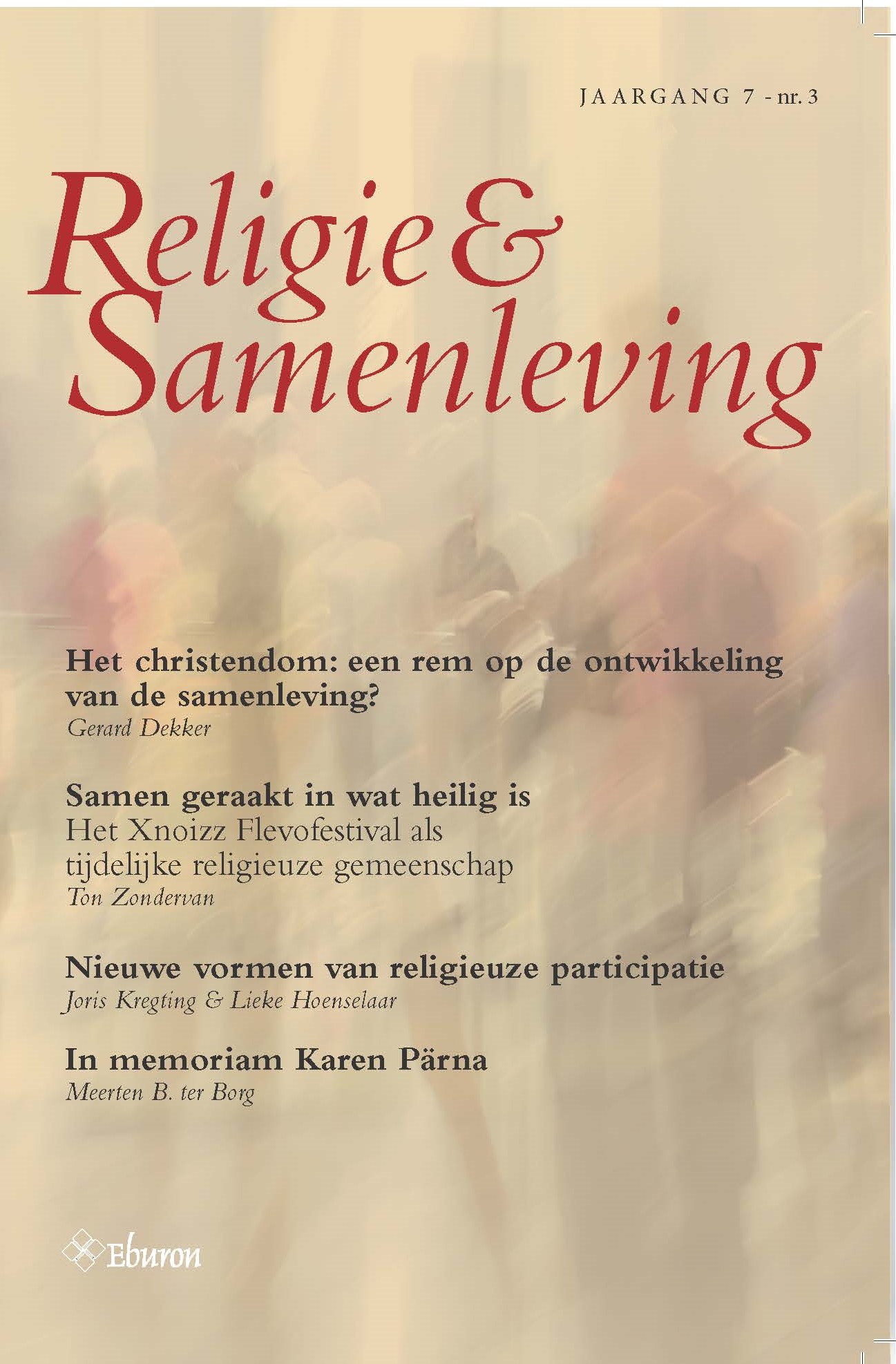Nieuwe vormen van religieuze participatie
DOI:
https://doi.org/10.54195/RS.12939Samenvatting
Since the 1960s, religion in considerable parts of the Western world has changed from being integrated in every aspect of people’s lives and focusing on discipline and morality, into a set of ideas with a lot of focus on personal choices in finding purpose in life and on authenticity. In this article we explore the expectations and needs of today’s believers, the forms of religious participation that might correspond to these expectations and to what extent the churches can contribute to these new forms of faith. It is assumed that this faith can especially be found among nonparticipating members of a church or believers without membership of a church; in the Netherlands these two groups form almost 40% of the population. These people can be reached by offering forms of religion that fit to their modern lifestyles and its characteristics, such as transparency, personal experience, individuality and authenticity. Pilgrimages, visiting monasteries, rituals around death and the well-watched TV-show The Passion are successful non-institutional examples of new forms of religious participation. If churches want to serve parts of the two mentioned groups of believers they will have to implement certain changes in their organization, with a shift of focus to a more temporary, event-like, client-serving form of church.




